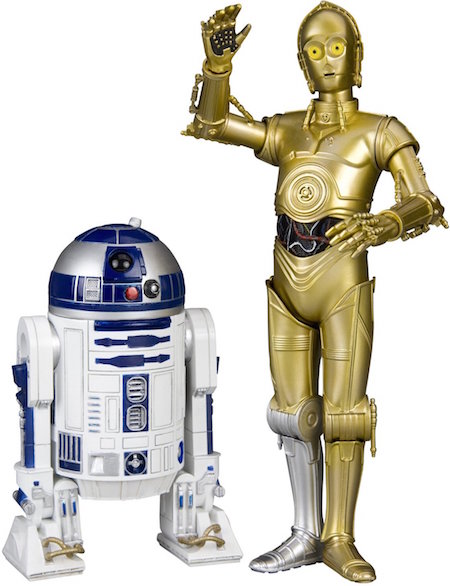 Welcome back to April’s Team Top Ten. If you missed our show last week, we chose the best science fiction films made before 1977, the landmark year when both Close Encounters of the Third Kind and Star Wars were released. This week, the masterworks after that milestone.
Welcome back to April’s Team Top Ten. If you missed our show last week, we chose the best science fiction films made before 1977, the landmark year when both Close Encounters of the Third Kind and Star Wars were released. This week, the masterworks after that milestone.
Although you won’t be shocked to find that we managed yet again to have a tie at number 10 – a three-way tie, no less – our selection otherwise sprang a few surprises. There were omissions of high profile titles – David Cronenberg's The Fly *sniffle* – but we did otherwise cover all decades, multiple genres and even animated films. Long-time readers will not win bonus points for guessing what film came first. Still the margin by which it won was unexpected. It topped half of all ballots and won more points than the second and third films combined. Without further ado…
Team Experience Top Ten
Best Science Fictions Film Produced After 1977...
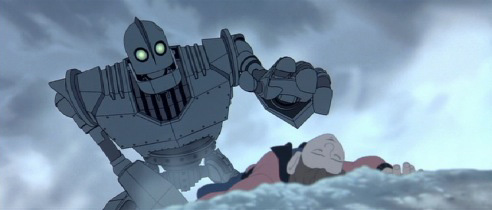
10. The Iron Giant (1999)
Even fifteen years after I have first seen it The Iron Giant is still one of those films that will light up my face with excitement when I read its name, or see an image from it somewhere. And it's no doubt the same excitement that so many people feel about Brad Bird's first film that has secured its lasting presence in popular culture, and now on this list. I have always been thrilled to introduce new audiences to The Iron Giant - watching it with friends who haven't seen it has become a bit of a tradition for me - so to think that its inclusion on this list might prompt a few of you to see it for the first time, or see it again with someone who doesn't know it yet, fills me with great joy.
–Sebastian Nebel
replicants, extra-terrestrials, and time travellers after the jump...
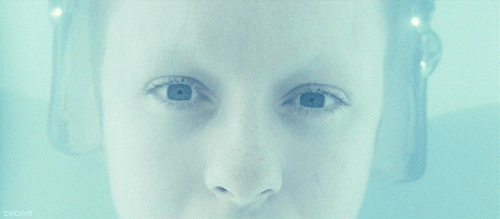
10. Minority Report (2002)
The year is 2054 and all crime has been eliminated from Washington with the help of a state of the art psychic technology program which arrests and convicts people before they commit their crimes. On the eve of the program going nationwide, Captain Anderton (Tom Cruise) is singled out by the program: he will kill someone named Leo Crow in 36 hours. Can it be true? Or is there a minority report (an alternate vision of the future seen by the female precognitive being that fuels the program) out there that says otherwise, thus clearing Anderton’s name? A haunting study of grief, a beautifully lensed neo-noir, a relentlessly entertaining man-on-the-run thriller and just an all-out ace adaptation of Philip K. Dick’s short story, Minority Report is, to my mind, Spielberg’s most accomplished film of this century and a modern sci-fi classic.
–Manuel Betancourt
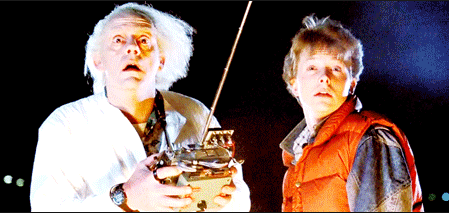
10. Back to the Future (1985)
As long as science and science fiction have been around, so has the idea of time travel. While it may not be the granddaddy of all time travel stories, Back to the Future sure feels like it. Nearly all of its iconography has become cultural shorthand for time travel: plutonium, the Delorean, the picture from the future in which people slowly fade away, our hero bringing about a change in the popular culture, Christopher Lloyd's nutty professor hairdo. There isn't another time travel story that has had such a seismic impact on the popular culture. And when we have one as perfectly entertaining as this, do we really need another?
–Daniel Bayer

9. Under the Skin (2014)
Much of sci-fi over the years has been dedicated to exploring the ways that aliens (literal and metaphorical) are more like us than different. That's not the approach taken in Jonathan Glazer's third film, which may be the youngest title on this list, but has already staked out its place as one of the genre's boldest works ever. That has a great deal to do with its sublime, well, alien-ness, from the geometrically abstract and thoroughly unsettling opening sequence to the pitch-perfect Scarlett Johansson as an Other like none other. The paradox and genius of the film is that it then uses this perfect inhuman as the vessel for terrifying, moving meditations on the most human subjects: gender, desire both sexual and otherwise (that cake!), safety in an arbitrary world, and the most basic questions of identity: who am I, and do I have a part in choosing that?
–Tim Brayton
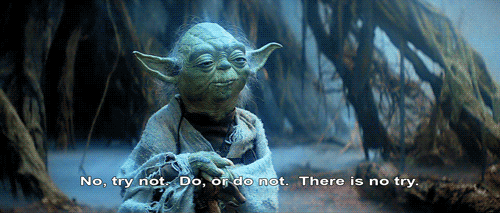
8. The Empire Strikes Back (1980)
If good science fiction immerses the viewer in an alternate world that seems at once alien and familiar, The Empire Strikes Back ranks among the best. Expanding the universe of Star Wars, it creates new worlds that feel like manifestations of our collective unconscious - from the icy brutality of Hoth to the physically and psychologically dense, misty swamps of Dagobah to the fragile suspension of Cloud City, as tenuous as its leader’s false promises. Against this rich visual and emotional landscape, what began as a jaunty space romp morphs into a harrowing journey of the soul, as our heroes discover that their destiny lies not in the stars or the strength of their arms, but in the balance of good and evil within themselves. It's a common message in sci fi, both before and since Empire, but seldom delivered on such an epic scale.
–Lynn Lee
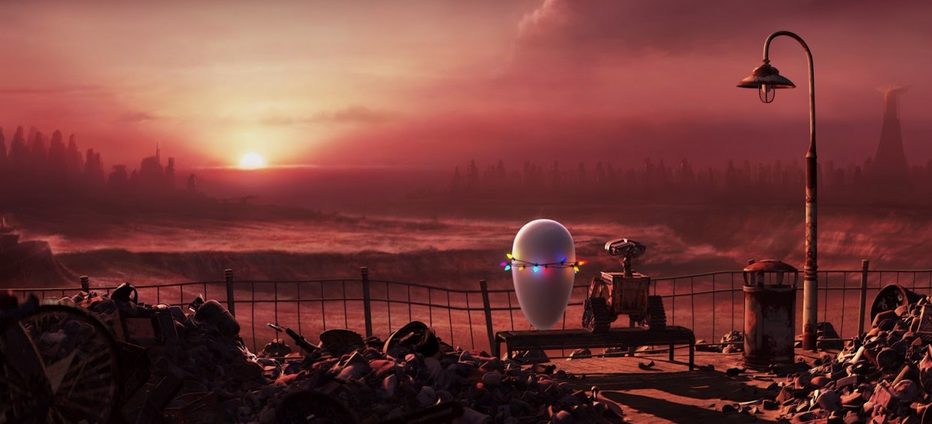
7. Wall-E (2008)
From its opening moments, Wall-E inspires the particular thrill that predicts one is watching a new classic. The story sees a wordlessly expressive robot tangle with the delicate issues of love, loneliness, and humanity, soundtracked by lesser-known numbers from the 1969 movie musical Hello Dolly! To describe it as a studio picture from a juggernaut distributor or as the fifth highest-grossing movie of its year might belie its artistic originality, and certainly its intimacy. Wall-E is a high-wire act: that it hits all of the requisite notes for a moneymaking animated feature -- lovable (read: merchantable) characters, broad humor, bald sentimentality -- while maintaining a level of complexity and virtuosity that few films can claim, is a small miracle. It sets a high bar for Pixar, for children's entertainment, for science fiction, and for all creative storytelling.
–Margaret de Larios
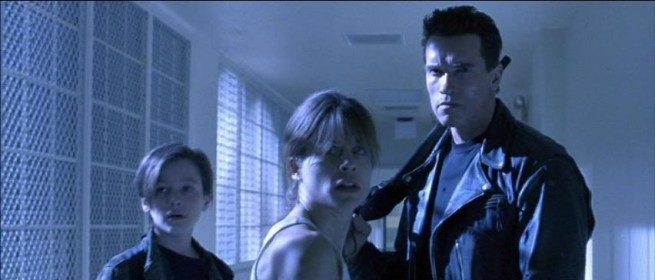
6. Terminator 2: Judgment Day (1991)
Sarah Connor is not a woman who lies to herself. If anything, she’s a mad prophet for a truth nobody believes or wants to hear. Given my well-known proclivities, you’d imagine Terminator 2 might fall outside my personal canon, but for a period of time, I was practically raised by this movie, walking a mile across an Army base in Germany almost every night it played the summer before ninth grade to mainline it again. Liquid metal had a lot to do with it, as did that foxy cop I sometimes had to remind myself not to root for. But mostly it was the film’s visual and formal elegance, streamlined without being short or slick and without dulling its fearsome, skull-crushing, ash-spewing, shrieking-from-the-sidelines premonition of total apocalypse. I’ve taught Terminator 2 at Northwestern, invoked it in graduation speeches, and seen it more often than I’ve met some of my relatives.
–Nick Davis
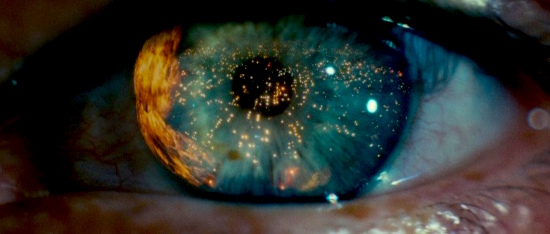
5. Blade Runner (1982)
Director Ridley Scott entered the cinema with an art degree, first working in set design and commercials - it's not hard to see that training in his work. His extraordinary eye insures that though there's plentiful detail in each frame, the impact is instant and never cluttered. That's true even when the environment is as cluttered as Blade Runner's polluted nightmare vision of urban living... and dying. Scott's visual gift reached its zenith in this hugely influential movie about artificial humans ("Replicants") and the lonely man hunting them down who finds that they're not so unalike. As with its absolutely perfect opening macro image of an eyeball seeing wonders (attack ships on fire off the shoulder of Orion?) Blade Runner remains at once human and abstract. So potent are its visuals that its easy to imagine that our world worked to conform itself to this vision of the future (only four years away - the film is set in 2019!) rather than a case of the movie merely being prophetic. Though its anything but timeless, its synthetic 1980s vision of the phantasmogorical future of the rapidly approaching 2020s as filtered through the doomed soul of 1940s noir have made it a source of endless time-sensitive fascination; no one knows how much time they have left and everyone, whether they're sad eyed lonely men or mysterious femme fatales, synthetics or biologicals, is ultimately unknowable.
-Nathaniel R
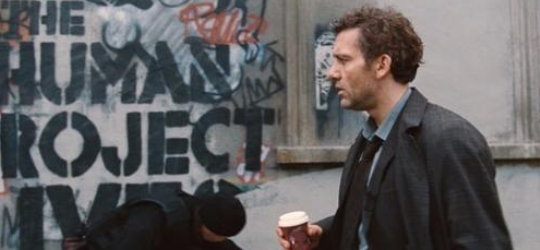
4. Children of Men (2006)
Some of the most effective science-fiction conjures up a world that seems disturbingly plausible, and so it is with Children of Men, Alfonso Cuaron’s masterful adaptation of P.D. James’ novel, which seems more and more like an eventual reality with each passing news item. James’ ingenious conceit removes the creation of life from our future, imagines what this does to the doomed society, and then pushes the glimmer of hope back into the world. Children of Men doesn’t really strike as science fiction as you watch it unfold, firmly held as you are within the world by Emmanuel Lubezki’s remarkable cinematography. This is quite simply one of the most stunning pieces of cinema ever made, and one that warns us, as the best sci-fi typically does, about appreciating and guarding the preciousness of the life we are in the process of destroying.
-David Upton
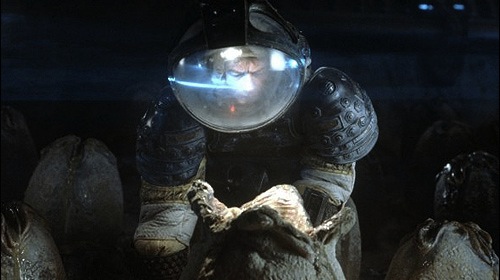
3. Alien (1979)
Ridley Scott's "Alien" seems to have been designed to fail, it was only the director's second film and he decided he would combine the two genres most detested by critics: horror and sci-fi. To make matters worse he assembled an eclectic cast and had most of their characters killed off, leaving behind practical unknown Sigourney Weaver to battle a nightmare-ish creature designed by H.R. Giger. Originally dismissed by critics as nothing but smoke and mirrors, "Alien" slowly carved its way into our collective nightmares, its primal horrors becoming even more real as we welcomed the digital age which has made us less prone to be affected by the woes of others. Scott's direction contains elements that became standards of both genres, his "realistic" take on industrial space travel itself inspired an entire generation of filmmakers who preferred raw over glossy.
–Jose Solis
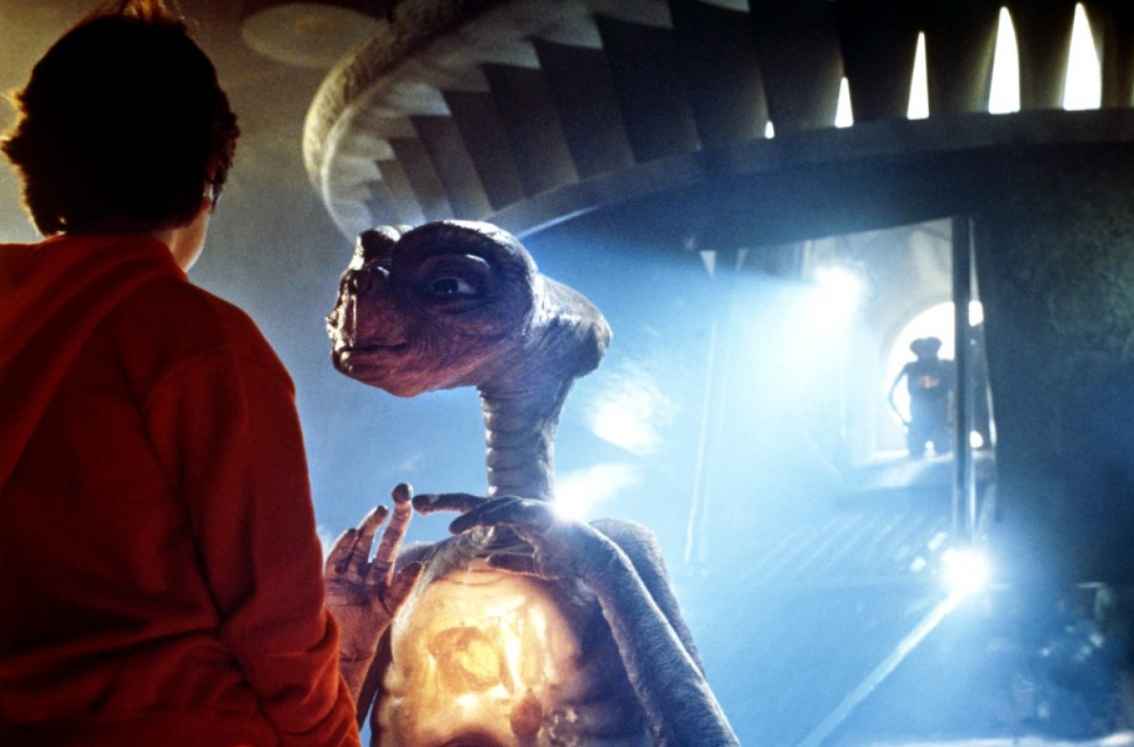
2. E.T. (1982)
Perhaps because the discipline of science is so rooted in “fact” over “myth”, the public opinion on science fiction films generally tend to be that they’re more cerebral than emotional. I’m not sure how much our Top Ten this month manages to deny that perception, but it’s the very fact that the very science-fiction-y E.T. is also the film which sees Steven Spielberg at what his dissenters would probably call his sentimental worst. I love the cerebral, but really the best thing about E.T. is how it approaches the complex idea of extra terrestrial and science fiction becomes just another word for magic, because that’s how I also think of E.T., functioning like a film about magic. And like magic E.T. despite its legend as being syrupy in its child friendly ways is also disconcerting and unnerving in its own way.It sounds banal, but E.T. works, and works so well, because it’s not just showing off with its science fiction aspect (in fact the alien life aspect sometimes defies logic) but it’s wonderfully used to tell a story that is warm and effective.
-Andrew Kendall
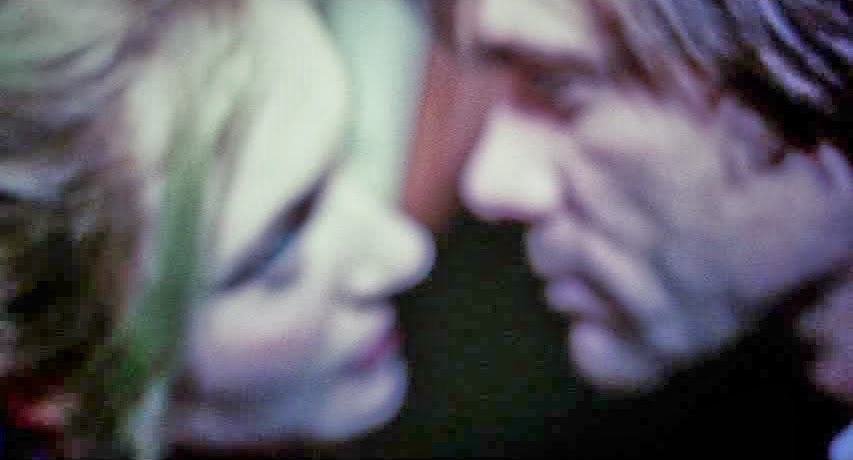
1. Eternal Sunshine of the Spotless Mind (2004)
There is a poetic balance in Eternal Sunshine of Spotless Mind being paired with 2001 at the tops of our modern and classic sci-fi polls. Both movies explore the idea of what it means to be human but head toward opposite extremes to do so. Where Arthur C. Clarke placed humanity in vastest possible expanses of space and time, Charlie Kaufman heads inward, swirling through the disintegrating memories of Joel and Clementine’s fading love affair, examining each fragment until a picture emerges that is greater than the sum of its scattered parts. Other sci-fi films may expand minds to greater effect, but none have used the tropes of science fiction to map the ineffable nature of the human heart as poignantly as Gondry's masterpiece, which in its own intimate way is as awe-inspiring as anything in Kubrick’s epic vision.
–Michael Cusumano

And there you have it. Our sci-fi journey for April, both imagined future and mnemonic "long time ago" fantasy, is at an end. We'd love to hear your thoughts on the highlights of this genre, films you wish were on the list, and these 12 pictures in particular in the comments.